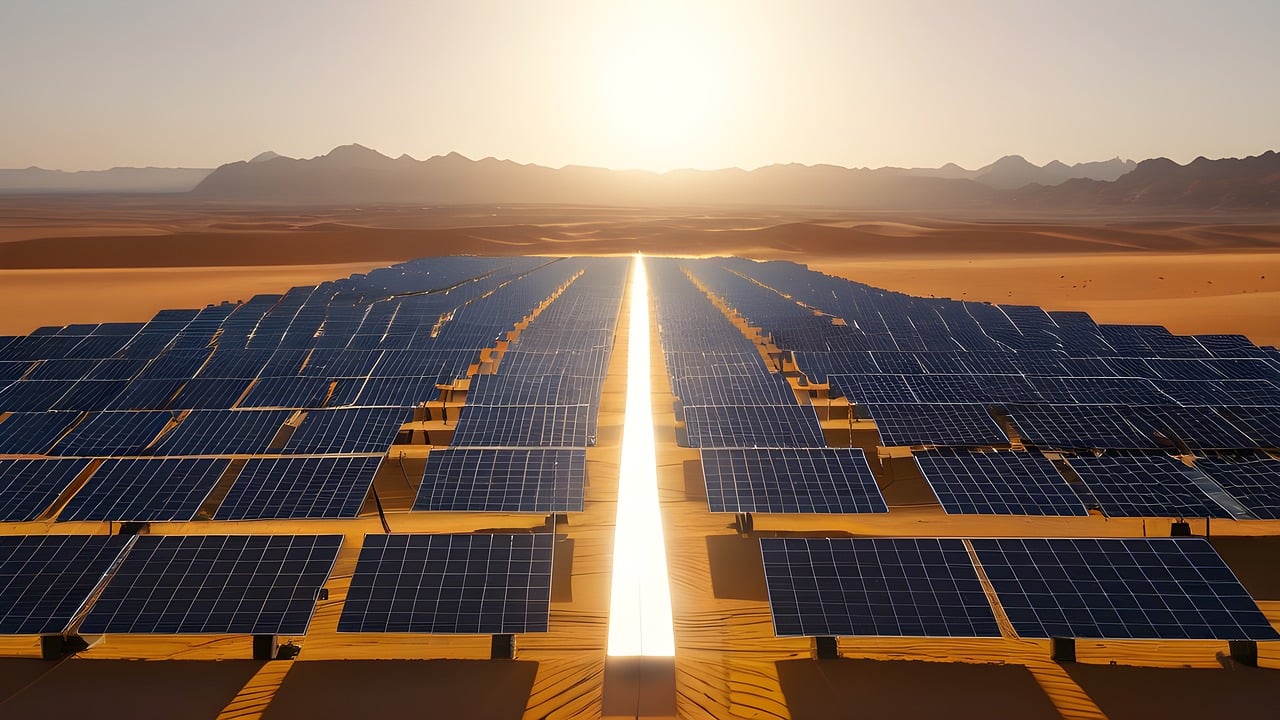Table of Contents
Solar energy has emerged as a key player in the quest for sustainable energy solutions. Through the adoption of solar panels, individuals and businesses alike can reap significant environmental, economic, and practical benefits.
# Environmental Sustainability
Solar panels are heralded as a sustainable energy source due to their minimal environmental impact. Unlike fossil fuels, solar energy generation produces no harmful emissions, reducing the carbon footprint significantly. By converting sunlight into electricity, solar panels alleviate the stress on natural resources and promote a more eco-friendly energy grid.
The benefits of using solar energy extend beyond reducing greenhouse gas emissions. Solar panels help decrease air pollutants like sulfur dioxide and particulate matter, which contribute to respiratory issues and other health problems. By adopting solar technology, communities can witness improved air quality and public health.
Moreover, the production of solar panels continues to advance with innovations emphasizing the use of recyclable and non-toxic materials. This evolution lessens the ecological footprint of solar panel production, making the technology ever more appealing as a green alternative. The life expectancy of solar panels also ranges between 25 to 30 years, diminishing the need for frequent replacements and further conserving resources.
# Economic Savings
Investing in solar panels can lead to substantial financial savings over time. While the initial installation cost has been a concern in the past, decreasing prices and the availability of financing options have made solar panels more affordable. Government incentives, tax credits, and rebates further ease the financial burden, often covering a significant portion of the upfront costs.
Once installed, solar panels provide free electricity derived from the sun, leading to marked reductions in monthly utility bills. Over the system’s lifespan, these savings can compound, yielding thousands of dollars in saved costs. In some areas, users can even sell excess electricity back to the grid through net metering, making solar investment even more lucrative.
Moreover, as energy prices continue to rise, the economic stability gained from solar power cannot be overstated. Solar panels safeguard against volatile energy markets by providing predictably low energy costs. In essence, solar panels serve as a long-term financial hedge, increasing household disposable income and contributing positively to the local economy.
# Energy Independence
Solar panels afford users a degree of energy autonomy that is increasingly valuable in today’s interdependent world. By generating their electricity, homeowners and businesses reduce reliance on the centralized power grid. This independence is particularly advantageous during power outages or grid failures, as solar panel systems often include battery storage options that ensure a continuous power supply.
Having solar panels translates to greater resilience against volatile global energy markets influenced by political instability and natural disasters. By generating power locally, communities can enjoy a more stable and reliable energy supply. Energy independence also fosters self-sufficiency, which can be a critical asset in remote areas or regions where electricity delivery is inconsistent.
Furthermore, the growth of microgrids—small-scale power grids that operate independently—highlights the potential of solar energy in achieving robust energy networks. Microgrids enhance energy security, improve power quality, and reduce transmission losses. By supporting and integrating solar panels into these microgrids, communities can maximize their energy resilience and sustainability.
# Technological Advancements
The solar industry is characterized by continuous innovation aimed at increasing efficiency and reducing costs. Research and development efforts have yielded significant improvements in solar cell technology, enhancing their ability to capture and convert sunlight into electricity. Innovations such as bifacial solar panels, which absorb light from both sides, and perovskite solar cells, known for their high efficiency and low production costs, are revolutionizing the sector.
Moreover, advancements in solar panel design and installation techniques have made the systems more versatile and aesthetically pleasing. Flexible solar panels can now be integrated into building materials, enabling the creation of solar roof tiles and facades that blend seamlessly with architectural designs. These innovations make solar technology more accessible and attractive to a broader audience.
The advent of smart technology has further boosted the appeal of solar energy. Modern solar systems often come with monitoring software that allows users to track their energy production and consumption in real-time. This capability not only helps users optimize their energy use but also facilitates timely maintenance and enhances the overall performance of the solar panel system.
# Contribution to Job Creation
The solar industry is a significant contributor to job creation, fostering economic growth and development. The installation, maintenance, and manufacturing of solar panels generate employment opportunities across various skill levels. As the industry expands, it creates a demand for engineers, technicians, sales professionals, and researchers, offering diverse career options.
In many regions, the solar industry has become a vital part of the local economy. Solar farms and production facilities provide steady employment, often revitalizing rural areas and reducing unemployment rates. Additionally, the rise of solar startups and small businesses contributes to entrepreneurial activity, stimulating innovation and competition in the market.
Government policies and public-private partnerships further bolster job creation within the solar sector. By investing in solar energy infrastructure and research, governments can catalyze job growth and workforce development. Training programs and certifications targeted at solar technology ensure that workers are equipped with the necessary skills to thrive in this burgeoning industry.
In summary, solar panels represent a smart investment offering substantial environmental, economic, and social benefits. By tapping into this renewable energy source, individuals and communities can move towards a more sustainable, resilient, and prosperous future.
